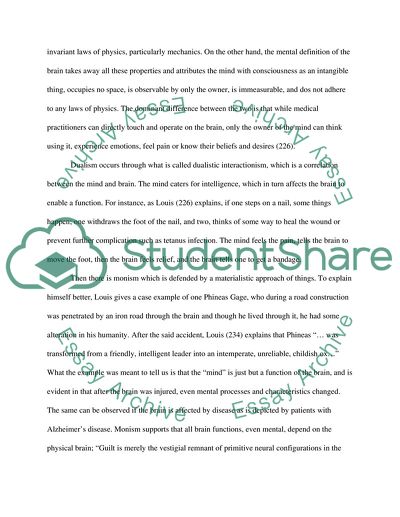Cite this document
(“The Dualism of Mind and Brain Book Report/Review”, n.d.)
Retrieved from https://studentshare.org/anthropology/1631202-mind-and-brain
Retrieved from https://studentshare.org/anthropology/1631202-mind-and-brain
(The Dualism of Mind and Brain Book Report/Review)
https://studentshare.org/anthropology/1631202-mind-and-brain.
https://studentshare.org/anthropology/1631202-mind-and-brain.
“The Dualism of Mind and Brain Book Report/Review”, n.d. https://studentshare.org/anthropology/1631202-mind-and-brain.


